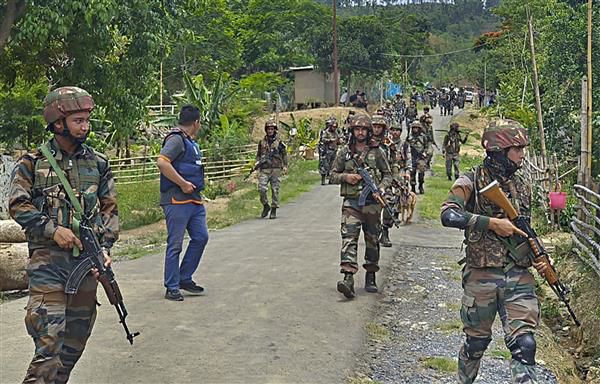The recent revelations by Manipur’s Security Adviser, Kuldiep Singh, regarding the entry of “900 Kuki militants” from Myanmar highlight a grave security concern for the region. This intelligence report, which has been deemed “100 per cent correct” by Singh, suggests that these militants are not only trained in jungle warfare but also equipped with drone technology for potential attacks. The seriousness of this situation cannot be overstated, especially given the ongoing ethnic tensions in Manipur, which have already led to significant loss of life and displacement.
The backdrop of this crisis is complex, rooted in historical grievances between the Meitei community and the Kuki tribes. As the Meiteis seek Scheduled Tribe status, the Kukis demand a separate administrative arrangement, citing longstanding discrimination. This struggle for identity and resources has now been exacerbated by the influx of militants, which adds a new layer of violence and instability.
The report raises alarms about the potential for coordinated attacks on Meitei villages, particularly in the coming weeks. Given the history of conflict in the region, the threat is not merely speculative. The involvement of insurgent groups from both communities in recent clashes confirms the volatile mix of local grievances and external militancy.
Moreover, the security situation is further complicated by the ongoing conflicts in Myanmar, where ethnic armed groups have gained ground against the military junta. This instability has direct implications for India, particularly in Manipur, which shares a porous border with the troubled regions of Myanmar.
The government’s response has been critical, but it also raises questions about the effectiveness of existing peace agreements. The recent clashes involving members of the Kuki Liberation Army and the United National Liberation Front (UNLF) underscore a breakdown in the ceasefire arrangements that were meant to stabilize the situation. These agreements, intended to curb violence, now appear to lack the necessary enforcement and credibility to be effective.
In light of these developments, the need for robust security measures, including the completion of border fencing, is paramount. However, it is equally important for the government to address the root causes of these tensions through dialogue and inclusive policies that recognize the rights and aspirations of all communities involved.
As the situation unfolds, it remains to be seen how the government will navigate these challenges. The stakes are high, not just for the people of Manipur but for the stability of the broader region. The time for proactive measures and genuine dialogue is now, before tensions escalate into further violence.



